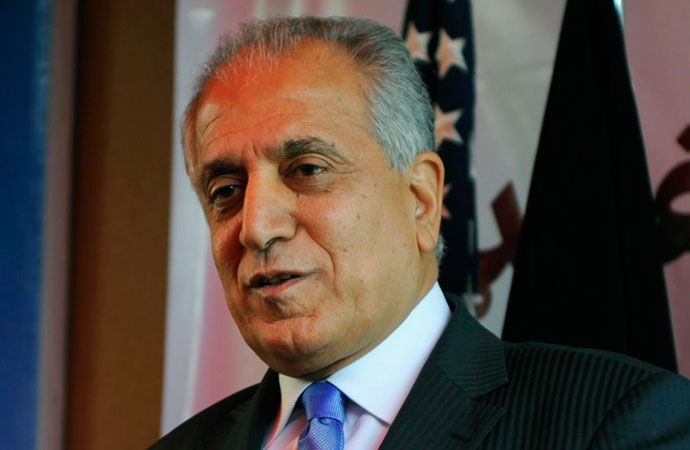 The war-weary Afghans anxiously await the key negotiations involving Afghans to decide a political roadmap but the process may not start this month as was earlier expected by the UN office in Kabul, American special envoy Zalmay Khalilzad, Pakistan and several Afghan leaders.
The war-weary Afghans anxiously await the key negotiations involving Afghans to decide a political roadmap but the process may not start this month as was earlier expected by the UN office in Kabul, American special envoy Zalmay Khalilzad, Pakistan and several Afghan leaders.
Differences over release of hundreds of the Taliban prisoners have delayed the intra-Afghan negotiations as the Taliban leadership has refused to sit face-to-face with the government unless the process of the release of 5000 Taliban should be completed.
Afghan government has refused to release nearly 600 Taliban prisoners on the plea that they are involved in serious crimes such as drug trafficking, abducting citizens, sexual assault, stoning of women, assassinations, and other “haq-ul-abd” (human rights) cases.
Afghan presidential spokesman Sediq Sediqqi said on Tuesday reiterated the government’s policy that hundreds of Taliban prisoners cannot be released because of their involvement in major crimes.
Taliban reject Kabul’s claim and insist that all prisoners were arrested during the 20-year of war and that the Americans had agreed on the release of 5000 Taliban in the agreement signed in February. The government has released over 4,000 Taliban.
Taliban spokesman Zabihullah Mujahid says the majority of Taliban prisoners were captured by the Americans and their NATO allies.
The Taliban will also release up to 1000 Afghan government’s prisoners under the US-Taliban agreement.
Taliban political spokesman Suhail Shaheen told Daily Times that they have released 861 government’s prisoners until Tuesday. He said a group of 16 soldiers and policemen of the Kabul Administration were released from a prison of the Taliban in northern Balkh province and sent to their families after they were given financial help for transportation fare.
Afghanistan’s acting Foreign Minister Haneef Atmar last week urged the Taliban to provide an alternative list of prisoners to release them instead of the nearly 600. The Taliban rejected the proposal.
The UN Assistance Mission in Afghanistan (UNAMA) in Kabul indicated earlier there are “prospect” of peace talks starting in July between Afghan government and Taliban negotiators.”
But two Taliban officials told Daily Times on Tuesday there is no plan for the intra-Afghan dialogue.
“There is nothing so far,” a Taliban leader said when asked if the negotiations are planned this month. The Taliban have refused to join the talks unless the remaining prisoners are freed.
Afghan officials said earlier that 12 countries including Turkey, Iran, Qatar, Indonesia, Japan, Russia, China, Norway and Germany have offered to host intra-Afghan negotiations.
Concerns are growing regarding the implementation of the second phase of the Taliban-US agreement if the intra-Afghan negotiations are delayed further. Under the agreement the talks should have begun on March 10.
The Taliban and the US have completed the first phase during which the US has reduced troops as part of the agreement reached with the Taliban.
The Pentagon confirmed last week that US troops have withdrawn from five military bases and reduced the size of its forces in Afghanistan.
“US forces in Afghanistan remain in the mid-8,000s and five bases formerly occupied by US forces have been transferred to our Afghan partners,” a Pentagon statement said on July 14.
A Taliban leader said Taliban are ready for the negotiations and more leaders have joined the team to make it more powerful. The Taliban leadership council has already given a go-ahead for the start of the dialogue that will determine a future political roadmap, according to the Taliban leader.
As both the Taliban and the Afghan government are not showing flexibility regarding the remaining prisoners, the long-awaited negotiations will not take place this month or in the near future.